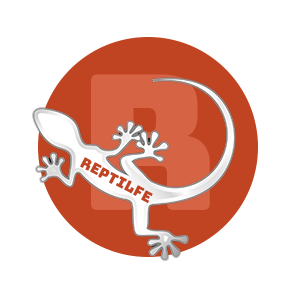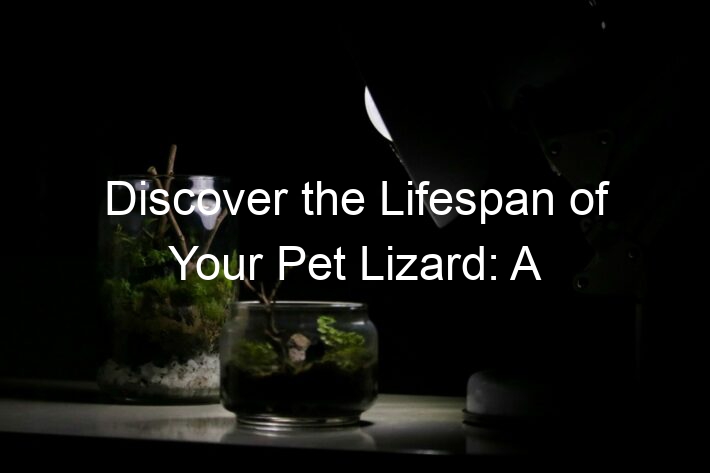Introduction: Debunking Reptile Diet Myths
Welcome to our in-depth exploration of reptile diets, specifically focusing on lizards. There are many misconceptions out there about what lizards should eat. It’s time to debunk these myths and provide accurate and helpful information for all lizard owners and enthusiasts.
- Overview of common misconceptions about lizard diets
- The importance of accurate knowledge in reptile nutrition
There are many myths about what lizards should eat. Some people believe that lizards only eat insects, while others think that all lizards are carnivores. These misconceptions can lead to improper feeding and health problems for our scaly friends. In this article, we will explore these myths and provide the truth about lizard diets.
Understanding the correct diet for your lizard is crucial for its health and longevity. Just like humans, lizards need a balanced diet to thrive. Feeding your lizard an improper diet can lead to health issues like malnutrition or obesity. By debunking these diet myths, we aim to provide you with the knowledge needed to ensure your lizard lives a healthy and happy life.
Let’s dive into the world of lizard nutrition and debunk some common myths. By the end of this article, you’ll be equipped with the knowledge to provide your lizard with the best possible diet.
Common Myths About Lizard Nutrition
There are many misconceptions surrounding the nutrition of lizards. One of the most common myths is that all lizards eat the same diet. This is far from the truth. Let’s debunk this myth and shed some light on the actual dietary needs of different lizard species.
Myth 1: All Lizards Eat the Same Diet
Contrary to popular belief, not all lizards eat the same diet. In fact, the diet of a lizard can vary greatly depending on its species. This is because different species of lizards have evolved to survive in different environments, each with its own unique food sources.
- Explanation of species-specific dietary needs: Just like humans, each species of lizard has its own specific dietary needs. For example, some lizards are insectivores, meaning they primarily eat insects. Others are herbivores, meaning they eat plants. There are even some species of lizards that are omnivores, meaning they eat both plants and meat. Understanding the specific dietary needs of your lizard is crucial to ensuring its health and longevity.
- Examples of different lizard diets: To give you a better idea of how varied lizard diets can be, let’s look at a few examples. The Bearded Dragon, for instance, is an omnivore that eats a mix of insects, fruits, and vegetables. On the other hand, the Green Iguana is a herbivore that primarily eats leaves, flowers, and fruit. The Leopard Gecko is an insectivore that feeds on insects like crickets and mealworms. As you can see, there is a wide range of diets among different lizard species.
In conclusion, it’s important to remember that not all lizards eat the same diet. Each species has its own unique dietary needs, and it’s crucial to understand these needs to provide the best care for your pet lizard.
Myth 2: Lizards Only Eat Insects
Many people believe that lizards only eat insects. This is a common misconception that we are going to debunk in this section. In reality, the diet of a lizard can vary greatly depending on its species, habitat, and individual nutritional needs.
-
Discussion on Omnivorous and Herbivorous Lizards
While it’s true that many lizards are insectivores, meaning they primarily eat insects, it’s not the whole truth. Some lizards are omnivores, which means they eat both plants and animals. An example of an omnivorous lizard is the Bearded Dragon, which enjoys a diet of leafy greens, vegetables, and insects.
Furthermore, there are also herbivorous lizards, such as the Green Iguana, which primarily eat plants. These lizards have a diet consisting mostly of leaves, flowers, and fruit. They have special teeth designed for grinding plant material, which is a clear indicator of their herbivorous nature.
-
Examples of Plant-Based Foods for Lizards
For those lizards that are omnivorous or herbivorous, a variety of plant-based foods can be included in their diet. These can range from leafy greens like kale and spinach, to vegetables such as bell peppers and squash, and even fruits like apples and bananas. However, it’s important to note that not all plant-based foods are suitable for all lizards. Always research the specific dietary needs of your lizard species before introducing new foods.
Lizard Species Plant-Based Foods Bearded Dragon Leafy greens, bell peppers, squash Green Iguana Leaves, flowers, fruit
In conclusion, the diet of a lizard is not limited to insects. Many lizards enjoy a varied diet that includes a range of plant-based foods. It’s important to understand the specific dietary needs of your lizard to ensure they are getting the right nutrition.
Truth About Lizard Diets: Reptile Diet Facts
When it comes to understanding the dietary needs of lizards, there are a few key facts that everyone should know. Let’s delve into the first fact.
Fact 1: Lizards Require a Balanced Diet
Just like humans, lizards also need a balanced diet to maintain their health and vitality. This involves a mixture of different food types, each providing essential nutrients. Let’s explore this in detail.
- The importance of a varied diet for lizards
- Key nutrients required by lizards
Feeding lizards the same food every day is not only monotonous for them, but it can also lead to nutritional deficiencies. A varied diet ensures that lizards get a mix of different nutrients, promoting overall health. For instance, a diet comprising insects, fruits, and vegetables can provide a good balance of protein, carbohydrates, and vitamins.
Lizards require a range of nutrients for optimal health. These include:
| Nutrient | Function |
|---|---|
| Protein | Essential for growth and tissue repair |
| Calcium | Important for bone health |
| Vitamins A, B, C, D, E, and K | Support various bodily functions like vision, digestion, and immunity |
| Fiber | Helps in digestion |
It’s important to note that the specific dietary needs can vary depending on the species of the lizard. Therefore, it’s always a good idea to research or consult with a vet about the specific dietary needs of your pet lizard.
In conclusion, a balanced and varied diet is crucial for the health of lizards. By understanding their nutritional needs, we can ensure that our scaly friends live a long, healthy, and happy life.
Fact 2: Some Lizards Need Dietary Supplements
Just like humans, lizards also need a balanced diet to stay healthy. Sometimes, their diet may need to be supplemented with vitamins and minerals. Let’s delve into this topic.
- Explanation of Vitamin and Mineral Supplements for Lizards
- Case Study: Effects of Calcium Deficiency in Lizards
Vitamins and minerals play a crucial role in the health of a lizard. They help in maintaining a healthy metabolism, bone structure, and overall vitality. Some lizards, especially those in captivity, may not get all the necessary nutrients from their diet. This is where dietary supplements come into play.
Supplements like calcium, vitamin D3, and multivitamins are commonly used. Calcium is essential for bone health while vitamin D3 aids in calcium absorption. Multivitamins ensure the lizard gets a well-rounded nutrient intake.
However, it’s important to note that not all lizards require supplements. The need for supplements largely depends on the species of the lizard and its specific dietary needs. Always consult with a reptile expert or a vet before introducing supplements into your lizard’s diet.
Calcium deficiency is a common issue in lizards, especially those kept as pets. This condition, also known as Metabolic Bone Disease (MBD), can have severe effects on a lizard’s health.
One study observed the effects of calcium deficiency in Bearded Dragons, a popular pet lizard. The dragons showed signs of MBD such as weak bones, difficulty in moving, and a decrease in overall health. Once a calcium supplement was introduced into their diet, their health improved significantly.
This case study highlights the importance of a balanced diet and the potential need for dietary supplements in some lizards. It’s crucial to monitor your lizard’s health and consult with a professional if you notice any changes in their behavior or appearance.
In conclusion, while some lizards may thrive on a diet without supplements, others may require additional vitamins and minerals to stay healthy. Always ensure you’re providing the right nutrition for your specific lizard species to keep them happy and healthy.
Lizard Food Misconceptions: Misunderstood Reptile Nutrition
There are many misconceptions about what lizards can and cannot eat. One of the most common misunderstandings is the belief that lizards can eat human food. Let’s debunk this myth.
Misconception 1: Lizards Can Eat Human Food
Many people believe that lizards can safely consume the same food that humans eat. This is a dangerous misconception. Lizards have a different digestive system than humans, and our food can be harmful to them.
- Discussion on the dangers of feeding lizards human food: Feeding lizards human food can lead to numerous health problems. For instance, foods high in sugar can cause obesity and diabetes in lizards. Dairy products can lead to digestive issues as lizards lack the enzymes to properly digest lactose. Foods high in salt can lead to kidney problems. It’s crucial to understand that lizards require a diet specific to their species and individual needs.
- Examples of harmful human foods for lizards: Some common human foods that are harmful to lizards include bread, dairy products, processed foods, and sweets. Even fruits and vegetables that are safe for humans can be harmful to certain types of lizards. For example, citrus fruits can cause digestive issues in many lizard species.
It’s important to remember that each lizard species has its own specific dietary needs. Always research your lizard’s diet and consult with a professional if you’re unsure about what to feed them. Remember, a healthy lizard is a happy lizard!
Misconception 2: Lizards Don’t Need Water
Many people believe that lizards, being reptiles, don’t require water. This is a common misconception. In reality, hydration is as vital for lizards as it is for any other living creature. Let’s delve into the importance of water for lizards and the best ways to ensure they stay hydrated.
- Explanation of the Importance of Hydration for Lizards
- Best Practices for Providing Water to Lizards
- Misting: Spray water on the sides of the enclosure and on any plants inside. This mimics the lizard’s natural environment and encourages them to drink.
- Drip System: A drip system can simulate a raindrop effect, which is more natural for many lizards.
- Proper Enclosure: Ensure the enclosure has a humid area, especially for tropical species, to help them stay hydrated.
Like all living organisms, lizards need water to survive. Water plays a crucial role in their overall health and well-being. It aids in digestion, helps regulate body temperature, and is essential for various bodily functions. Without adequate hydration, lizards can suffer from dehydration, leading to lethargy, loss of appetite, and in severe cases, even death.
Providing water to lizards is not as simple as placing a bowl of water in their enclosure. Lizards, especially desert species, are not used to drinking from stagnant water sources. They prefer to drink water droplets from leaves or the sides of their enclosure. Here are some best practices:
In conclusion, water is an essential part of a lizard’s diet. By understanding their unique hydration needs and implementing the best practices, you can ensure your lizard stays healthy and hydrated.
Conclusion: Lizard Diet Misconceptions Debunked
In this article, we’ve taken a deep dive into the world of lizard nutrition, debunking common myths and misconceptions. We’ve learned that understanding the dietary needs of our reptile friends is crucial to their health and well-being. Let’s summarize the key takeaways and emphasize the importance of continued education in reptile nutrition.
- Summary of Key Takeaways
Firstly, not all lizards are carnivores. Some species, like the Green Iguana, are primarily herbivores. Secondly, lizards can’t survive on insects alone. They require a balanced diet of proteins, fruits, and vegetables. Thirdly, lizards need calcium and vitamin D3 for bone health, which they usually get from sunlight and diet.
Lastly, feeding lizards with human food, like bread and dairy products, can be harmful. They have different digestive systems and nutritional needs than humans. Always consult with a vet or a reptile nutrition expert before introducing new food to your lizard’s diet.
- The Importance of Continued Education in Reptile Nutrition
Reptile nutrition is a complex field that is continually evolving. New research and discoveries are being made all the time, and what we know about the best practices for feeding lizards can change. This is why it’s so important for lizard owners and enthusiasts to continue learning and staying up-to-date with the latest information.
Understanding the dietary needs of your reptile can significantly impact their health and longevity. By debunking these common misconceptions, we hope to encourage more responsible and informed care for these fascinating creatures.
Remember, every lizard is unique, and what works for one may not work for another. Always seek professional advice when it comes to your lizard’s diet and health.




